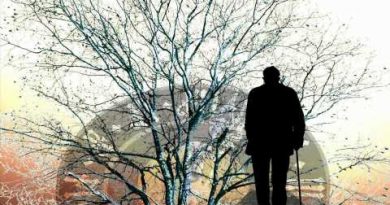Spain faces new restrictions despite high vaccine rates

Despite vaccination rates that make other governments envious, Spain is facing the hard truth that, with the new omicron variant running rampant, these winter holidays won’t be a time of unrestrained joy.
The country had hoped to rely on the willingness of 80% of its entire population of 47 million (90% of those over age 12) to line up for vaccine shots with little-to-no prodding and the widespread use of face masks to have a Christmas that looked much more like 2019 than like last year.
But the incredibly fast spread of the omicron variant that reached Spain less than a month ago is starting to put pressure on hospitals, even though experts agree that being vaccinated still greatly reduces the risk of falling seriously ill.
Catalonia, home to the northeastern city of Barcelona, is prepared to become the first Spanish region to reinstate serious limitations and put a damper on the holiday cheer. One in four of everyone hospitalized in Spain with COVID-19 is in Catalonia.
“We had all hoped to spend these Christmas holidays with our family and loved ones, but unfortunately we are not in that situation,” Catalan regional president Pere Aragonès said Tuesday. “You don’t have to look at the numbers. All of us know people who have been infected.”
Catalan health authorities have asked the courts to authorize a battery of measures including a new nightly curfew from 1-6 a.m., a limit of 10 people per social gathering, the closure of night clubs, and capping restaurants at 50% of indoor seating and stores, gyms and theaters at 70% capacity. If approved, the rules would take effect on Christmas Eve and last for 15 days, thus also wiping out New Year’s parties.
“These steps are absolutely necessary,” said Catalonia’s regional health chief, Josep Argimon. “Infections have grown 100% over the past week.”
Spain is back in the high-risk zone with over 600 cases per 100,000 inhabitants over 14 days, more than double the accumulated cases seen before last year’s winter holidays. The omicron strain has shot up from 5% of new cases in Spain to 47% within one week, according to the health ministry.
The decision by Catalonia comes before Prime Minister Pedro Sánchez meets via video with the heads of Spain’s 17 regions on Wednesday to discuss new health measures.
Medical groups and experts are clamoring for more action to be taken.
“The rise in the diagnosis of new cases in health clinics and hospitals … can in the short- to mid-term lead to a new collapse of the health system,” Spain’s association of lung doctors said last week.
But it seems that most are reluctant to go as far as Catalonia, which has nearly 30% of its intensive care beds occupied by COVID-19 patients.
That has left many families to make some hard decisions and take their health into their own hands.
So many Spaniards are relying on self-screening that there is a shortage of self-administered antigen COVID-19 tests. Some pharmacies are completely out and the lack of supply is pushing prices up.
The Madrid Pharmaceutics Official College told The Associated Press that demand in November had gone up 500% in a month. Shipments were still arriving in pharmacies, although late, and quickly being purchased by customers.
Among those looking for the test kits was Eulalia Rodríguez. Her family was planning to welcome a relative traveling from abroad for Christmas and she was struggling to find the tests after inquiring in four different pharmacies in the Spanish capital.
Source: Read Full Article



